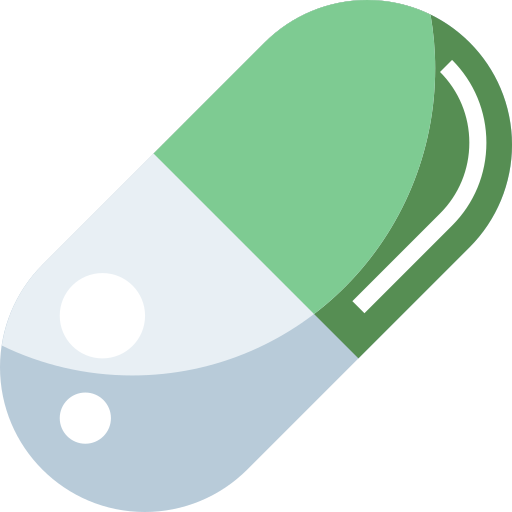
Product Details
Description
Cephradine is a semisynthetic broad spectrum bactericidal antibiotic, it is active against infections caused by both gram-positive and gram-negative microorganisms. Both penicillinase producing and nonproducing staphylococci are sensitive to Cephradine. The main site of action of Cephradine is the cell wall of bacteria. Cell wall of sensitive organism contains peptidoglycan. Cephradine inhibits cross-linking process and as a result cell wall with many pores are formed, thus lysis of bacteria occur due to external osmotic pressure.
Cephradine is indicated for the treatment of infections caused by sensitive Gram-positive and Gram-negative bacteria. These include- Undesirable Upper respiratory tract infections: sinusitis, pharyngitis, tonsillitis, laryngo-tracheo bronchitis and otitis media, and also Lower respiratory tract infections: bronchitis (acute and chronic), lobar pneumonia and bronchopneumonia. Urinary tract infections: cystitis, urethritis and pyelonephritis. Skin and soft tissue infections: abscess, cellulitis, furunculosis and impetigo. The following microorganisms are susceptible, in vitro to Cephradine: Gram-positive: Staphylococci (both penicillin sensitive and resistant strains and penicillinase-producing species), Streptococci, Streptococci pyogenes (beta haemolytic), Streptococcus pneumonia. Gram-negative: Escherichia coli, Klebsiella spp, Proteus mirabilis, Haemophilus influenza, Shigella spp, Salmonella spp (including Salmonella typhi), Neisseria spp Many strains of E.coli and Staphylococcus aureus that produce the enzyme penicillinase and thus are ampicillin resistant, are susceptible to Cephradine which is unaffected by this enzyme.
Cephradine should not be used in patients with known or suspected hypersensitivity to cephalosporins.
Limited essentially to gastro-intestinal disturbances and on occasions to hypersensitivity phenomena. The latter are more likely to occur in individuals, who have previously demonstrated hypersensitivity and thos with a history of allergy, asthma, hay fever or urticaria. Skin reactions have occasionally been reported. Rare- Glossitis, heartburn, dizziness, tightness in the chest, nausea, vomiting, diarrhoea, abdominal pain, vaginitis, candida overgrowth. Skin and hypersensitivity reactions include urticaria, skin rashes, joint pains, oedema. Blood and lymphatic system disorders- Unknown: blood disorders (including thrombocytopenia, leucopenia, agranulocytosis, aplastic anaemia and haemolytic anaemia) Immune system disorders- Unknown: Fever, serum sickness like reactions, anaphylaxis Psychiatric disorders- Unknown: Confusion, sleep disturbances Nervous system disorders- Unknown: hyperactivity, hypertonia, dizziness, nervousness; Rarely: Headache Hepatobiliary disorders- Frequency unknown: Liver, enzyme disturbances, transient hepatitis, cholestatic jaundice Renal and urinary disorders- Unknown: Reversible interstitial nephritis Investigations- Unknown: Elevation of blood urea nitrogen, serum creatinine, alanine aminotransferase, aspartate aminotransferase, total bilirubin, alkaline phosphatase.
Although animal studies have not demonstrated any teratogenicity, safety in pregnancy has not been established. Cephradine is excreted in breast milk and should be used with caution in lactating mothers. Since the medicine may cause dizziness, patients should be cautioned about operating hazardous machinery, including automobiles.
Prolonged use of an anti-infective may result in the development of superinfection due to the emergence of resistant organisms. Cephradine should be administered with care to patients hypersensitive to penicillins because of the risk of cross-sensitivity between beta-lactam antibiotics. Cephalosporin antibiotics may cause a positive result in Coombs’ testing. When Coombs testing is performed on neonates whose mothers received cephalosporins prior to labour, it should be noted that a positive result may be due to the drug. Cephradine may cause a false positive urine glucose result when Benedict’s or Fehling’s solutions or tablets such as Clinitest are used in the testing. This does not occur with enzyme-based tests (e.g. Clinistix, Diastix). Dosage adjustment is necessary in renal impairment. This product contains lactose. Patients with rare hereditary problems of galactose intolerance, the Lapp lactase deficiency or glucose-galactose malabsorption should not take this medicine.
Renal Impairment: The following doses are recommended (based on 500 mg every 6 hours) for patients not on haemodialysis: CrCl: >20 ml/min: 500 mg every 6 hours CrCl: 5-20 ml/min: 250 mg every 6 hours CrCl: <5 ml/min: 250 mg every 50-70 hours. Recommendations for patients on chronic, intermittent haemodialysis: 250 mg at the start of haemodialysis 250 mg 6 to 12 hours after the start 250 mg 36 to 48 hours after the start 250 mg at the start of the next haemodialysis session if more than 30 hours have elapsed since the last dose. Additional Information for all patients Regardless of patient age or weight, higher doses of up to 1 gm four times daily may be required for infections which are chronic or severe. Treatment should continue for at least 2 to 3 days after symptoms have resolved or bacteria have been eradicated. To reduce the possibility of rheumatic fever or glomerulonephritis resulting from infections with haemolytic streptococci, treatment should be continued for at least 10 days. Throughout treatment of chronic urinary tract infections and for several months thereafter, regular bacteriological and clinical monitoring is required. Doses below those recommended above should not be prescribed. Paediatric dosages should not exceed those specified for adults, regardless of severity of infection. It may be necessary to continue Cephradine therapy for several weeks in persistent infections. Patients may be transferred from intramuscular/intravenous Cephradine therapy to oral treatment at the same dosage level.
The symptoms of Sefrad overdose are non-specific and are generally nausea, vomiting, diarrhoea and gastric upsets. Treatment is mainly supportive although gastric lavage will be necessary if a large amount has been ingested.
First generation Cephalosporins
-
Support 24/7
Call us anytime -
100% Safety
Only secure payments